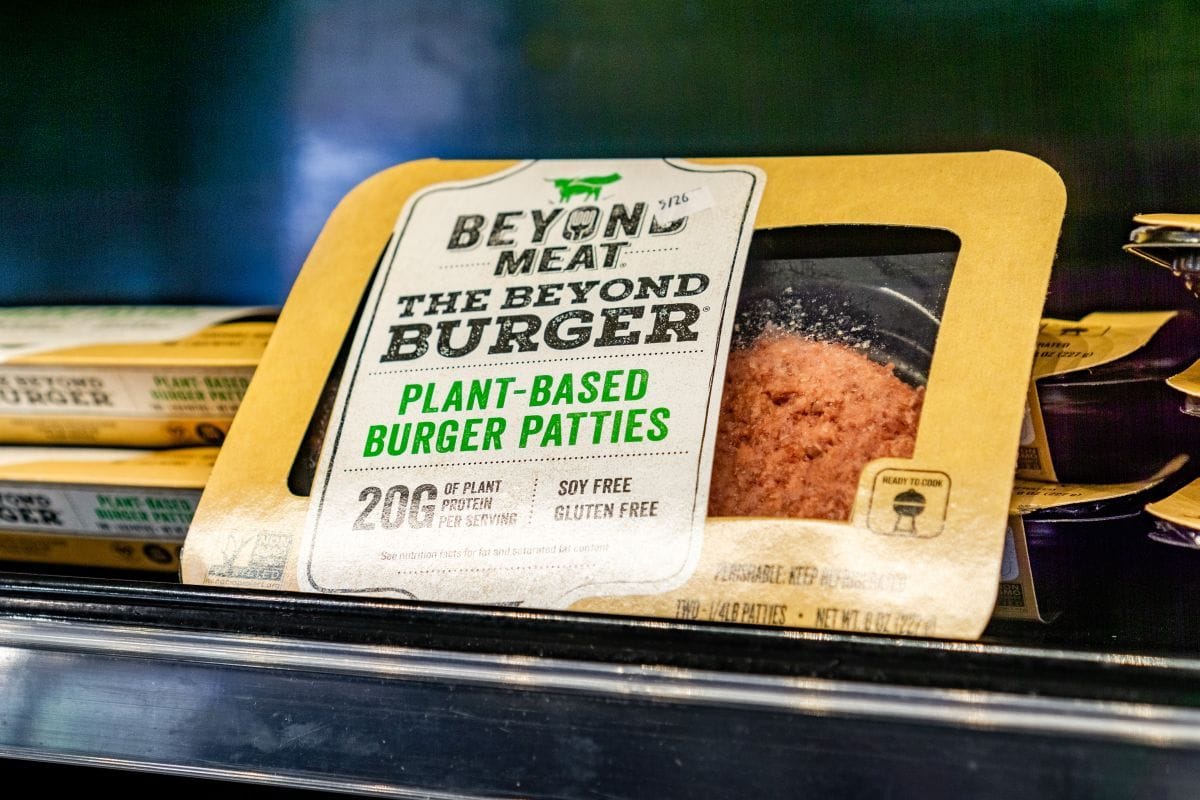Beyond Meat Hit With $39 Million Trademark Verdict
A small Pennsylvania food manufacturer alleges Dunkin’ and Beyond Meat copied its long-held plant-based slogan in a multimillion-dollar campaign.
Published on
A federal jury in Massachusetts has awarded nearly $39 million to Vegadelphia Foods after determining that Beyond Meat unlawfully used marketing slogans that infringed Vegadelphia’s longstanding trademark. The decision concludes a multi-year dispute that began with a 2022 complaint asserting that Beyond Meat and its promotional partner Dunkin’ misappropriated the central elements of Vegadelphia’s registered branding to promote a nationwide plant-based sausage campaign.
Background of the Trademark Dispute
Vegadelphia, a Pennsylvania-based manufacturer of plant-based chicken and beef alternatives, adopted the slogan “Where Great Taste Is Plant-Based” in 2013. The phrase was incorporated into packaging, distributor materials, fast-food partnerships, and national retail placements. The slogan received federal trademark registration in 2015 and achieved incontestable status after continuous use.
According to the complaint, the company had invested significant resources into building goodwill associated with the mark, expanding into multistate distribution and maintaining relationships with restaurants and grocery chains. The filing emphasized that the mark functioned as a source identifier across the company’s food service and retail channels.
Vegadelphia argued that this prominence made the slogan especially vulnerable when competitors adopted similar phrasing for closely related goods.
Beyond Meat’s National Campaign and Alleged Infringement
The dispute arose after Beyond Meat partnered with Dunkin’ in 2019 to launch the Beyond Sausage breakfast sandwich. The advertising rollout—supported by television spots, celebrity endorsements, store signage, social media promotions, and delivery-app listings—centered on the slogans “Great Taste, Plant-Based” and “Plant-Based, Great Taste.”
Court filings recount a substantial marketing investment, including a Snoop Dogg commercial, extensive in-store promotional materials, and an estimated one billion total viewer impressions. Vegadelphia argued the campaign borrowed not only the words from its mark but also its visual formatting, including stacked text, green coloration, and sun-ray imagery. The complaint asserted that the similarities “were beyond coincidence” and resulted in widespread marketplace confusion.
Vegadelphia also highlighted the parties’ overlapping distribution networks. Both companies produced meat substitutes; both sold through fast-food restaurants, delis, and retail outlets; and both targeted consumers seeking plant-based protein alternatives. The complaint further asserted that Vegadelphia’s presence in restaurant chains such as Meson Sandwiches placed it in direct competition with Dunkin’ locations using the challenged slogans.
The Jury’s Determination
The Massachusetts jury found that Beyond Meat’s use of the disputed slogans infringed Vegadelphia’s registered mark and was likely to mislead consumers about the source of the products. According to filings, the panel concluded that Beyond Meat had continued using the marketing language even after learning of Vegadelphia’s rights, including after receiving cease-and-desist correspondence in 2020.
Vegadelphia’s lead attorney Ben Wagner stated in a public filing that “Beyond Meat’s flooding of the market with a virtually identical slogan, well after becoming aware of Vegadelphia’s registered trademark rights, cost its competitor Vegadelphia the perfect expansion opportunity at the height of the plant-based meat boom.” Beyond Meat has announced its intent to appeal, maintaining that the slogans accurately described its products and were unlikely to cause confusion.
Legal Considerations and Broader Implications
The verdict underscores the heightened protections afforded to incontestable trademarks and the challenges companies face when using descriptive slogans in competitive sectors. The jury’s conclusion that the campaign created a likelihood of confusion reflects key Lanham Act principles, particularly where similar marks are used on identical goods across identical channels of trade.
The case also illustrates the risks associated with large-scale national advertising campaigns when trademark clearance processes are disputed or incomplete. In addition to direct infringement, Vegadelphia alleged contributory infringement, citing Beyond Meat’s role in supplying materials used by Dunkin’ franchisees and delivery platforms. The jury’s finding, combined with the size of the award, signals that willful conduct—if accepted by fact-finders—can significantly elevate damages exposure.
From a branding perspective, the outcome highlights the importance of differentiating marketing language in saturated product categories. As the plant-based food sector continues to mature, trademark disputes involving slogans, packaging, and trade dress are likely to attract increased scrutiny, especially where competitors vie for similar consumer demographics.
What Happens Next
Beyond Meat is expected to challenge the verdict through post-trial motions and appellate review. In the interim, the award provides substantial monetary relief to Vegadelphia and establishes a clear delineation of trademark rights surrounding plant-based product marketing. The case may influence how manufacturers within the alternative-protein space evaluate advertising strategies, pre-launch trademark searches, and internal controls designed to reduce infringement risk.
Case Details
Case Name: Vegadelphia Foods v. Beyond Meat Inc.
Court Name: U.S. District Court for the District of Massachusetts
Case Number: 1:23-cv-10690
Plaintiff Attorney(s): Troutman Pepper Locke
Defense Attorney(s): Buchalter


